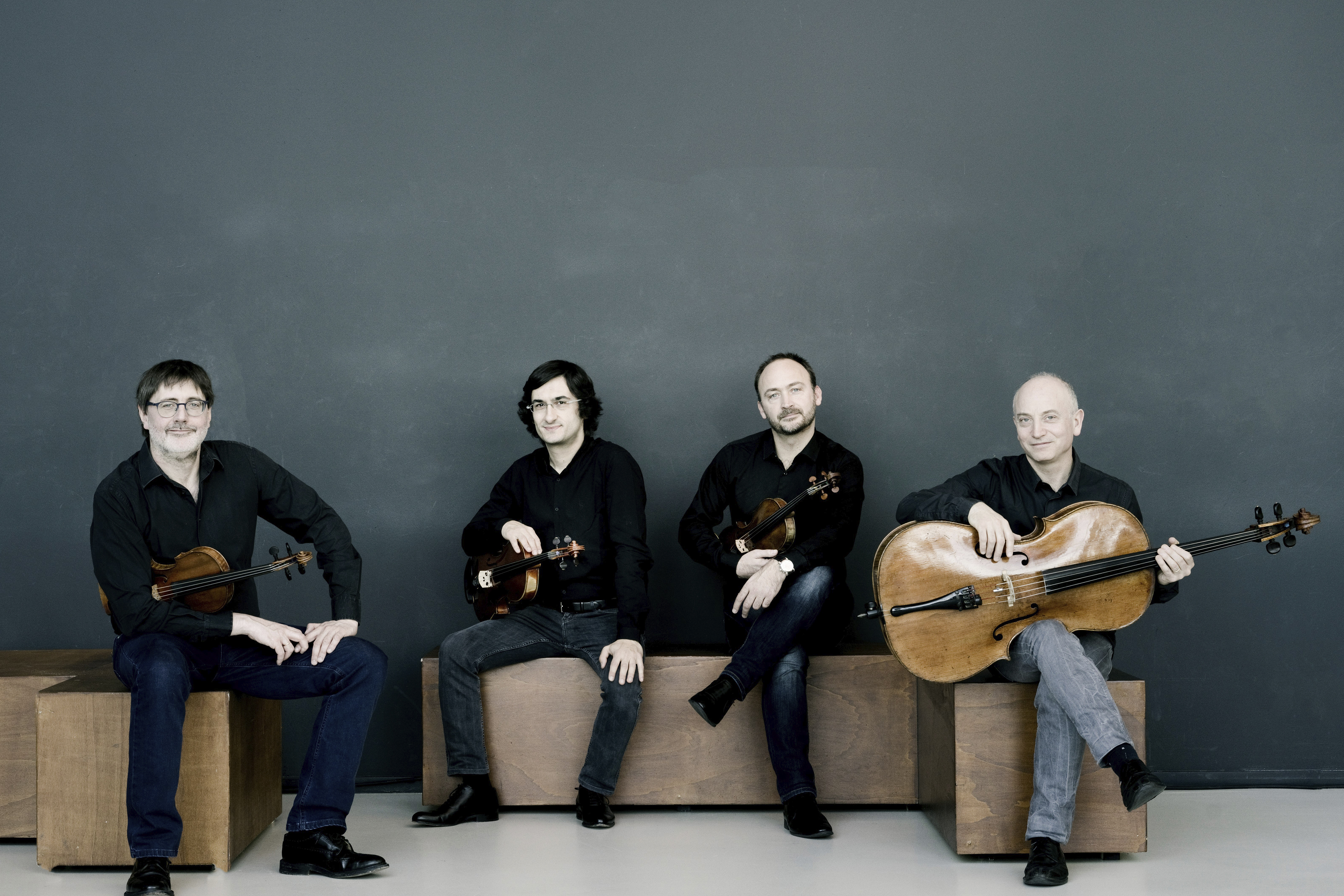About the production
Start
11 a.m.
End
1 p.m.
This year the Lausitz Festival will present Quatuor Danel in various locations around the region performing the complete Beethoven string quartets in the order of their composition. The Quartet No. 10, Op. 74 is often called the »harp quartet« because of the pizzicato notes in the first movement. Beethoven composed this work in 1809 in the same key as his last piano concerto and the piano sonata »Les Adieux«, which were written at about the same time: E-flat major. The use of this heroic key was a protest against Napoleon, who occupied Vienna in May of that year and won the war against Austria in October. Although early critics questioned the piece’s »dark spirit« and »unnecessary jumble of harsh dissonances«, the quartet immediately found favor with both aristocratic and bourgeois listeners.
Beethoven began work on the String Quartet No. 11 in F minor, Op. 95 in 1810 and revised it again before the premiere in 1814. The piece is the last of the Middle Quartets and is extremely compact, both formally and harmonically. Beethoven himself said this »Quartetto serioso« was intended »for a small circle of sophisticated listeners and … should never be performed in public.« The dark mood of the work has often been ascribed to Beethoven’s unhappiness in love, but the lively theme in F major of the Rondo-Finale is radiantly joyful – a sign of triumph over his loneliness or simply ironic romantic hope?
After completing the Ninth Symphony, Beethoven began his series of Late Quartets in 1824 with the String Quartet No. 12 in E-flat major, Op. 127. This piece was published in 1826, the only one of the late quartets to be published during his lifetime. The Russian prince Galitzin had commissioned Beethoven to write three quartets. No. 12 is the first of this group and begins with a concise, chorale-like Maestoso that appears three times in the first movement. The movement ends with a tender melodic exchange, which Beethoven said »deserves to be preferred above all others.« The premiere in 1825 was a fiasco: not only were the players under-rehearsed, one of the violinists’ strings broke during the performance. In the years since, however, this technically difficult yet poetic work has become much admired.
Quatuor Danel
Das belgische Quatuor Danel wurde 1991 gegründet und ist heute auf allen großen Konzertbühnen der Welt zuhause. In seiner jetzigen Besetzung mit Marc Danel (Violine), Gilles Millet (Violine), Vlad Bogdanas (Bratsche) und Yovan Markovitch (Cello) spielt es seit 2014. Viele Aufnahmen seiner umfangreichen Diskographie wurden mit internationalen Preisen ausgezeichnet.
Das Quartett wird gerühmt für seine Interpretationen ganzer Streichquartett-Œuvres. Dabei spielen russische Komponisten wie Schostakowitsch eine besondere Rolle. Es ist zudem das erste Ensemble, das sämtliche 17 Quartette von Mieczysław Weinberg eingespielt und als gesamten Zyklus in Manchester und Utrecht live aufgeführt hat. Als Uraufführungsquartett arbeitet es darüber hinaus regelmäßig mit zeitgenössischen Komponisten zusammen, darunter Wolfgang Rihm, Helmut Lachenmann, Sofia Gubaidulina, Jörg Widmann und Bruno Mantovani. Zu seinen musikalischen Partnern gehören Künstler wie Leif Ove Andsnes, Jean-Efflam Bavouzet, Alexander Melnikov, Adrien La Marca, Clemens Hagen oder das Borodin Quartet. Das Quatuor Danel ist Quartet in residence an der University of Manchester.
Artists
Violine Marc Danel
Violine Gilles Millet
Bratsche Vlad Bogdanas
Cello Yovan Markovitch
Location
Location Grüner Saal, Schloss Branitz
Address Robinienweg 5, 03042 Cottbus / Chóśebuz

Cooperation partners



